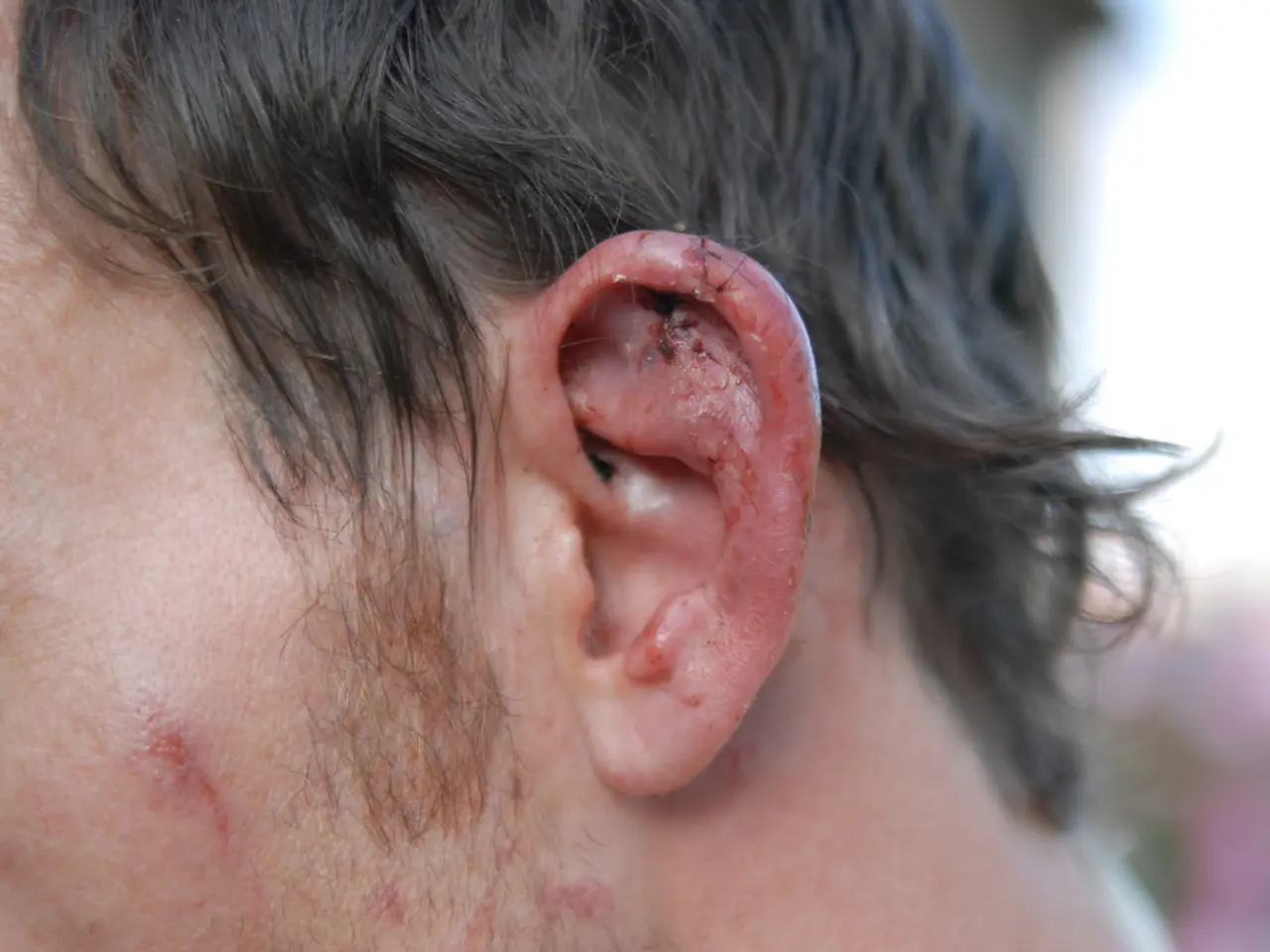daily occurrences of brief spells of dizziness: potential sources and when to seek medical attention
Feeling like the room's spinning when you're on a thrill ride isn't a problem, but experiencing random dizzy spells throughout the day? That's a cause for concern. These symptoms can be due to various conditions, from something as innocent as slacking on hydration to nasty, even life-threatening emergencies, like a stroke.
Doctors usually differentiate among vertigo (a spinning sensation), presyncope (lightheadedness or feeling like you might faint), disequilibrium (an unsteady or off-balance feeling), and general dizziness (a vague feeling that's hard to describe). Figuring out the root cause can be tricky since people perceive dizziness differently.
Sometimes dizzy spells come out of nowhere. Other times, they co-occur with symptoms such as a headache, nausea, or anxiety. Remember that there's a connection between the vestibular system (which helps maintain balance) and the autonomic nervous system (in charge of basic body functions like breathing and heart rate). So whatever is causing the dizziness could also trigger fight-or-flight mode, leaving you pale, clammy, and nauseous.
To identify potential causes, consider whether your dizzy spells lean more towards the spinning or woozy type. This will help narrow down your options. Here are common culprits for each category:
Dizzy spells that feel like spinning
- Alcohol influences the central nervous system and the inner ear, causing a temporary spinning sensation due to positional alcohol nystagmus.
- Motion sickness occurs when your eyes, ears, body, and brain can't agree on what's happening. Modern technology can trigger motion sickness during virtual reality experiences, too.
- BPPV (Benign Paroxysmal Positional Vertigo) is a common inner ear disorder that can leave you with a spinning sensation.
- Labyrinthitis (an inner ear infection) or vestibular neuritis (inflammation of the vestibular nerve) may cause vertigo, nausea, vomiting, and hearing loss.
- Ménière’s disease and vestibular migraines can trigger vertigo and may be accompanied by tinnitus (ringing in the ears).
Dizzy spells that feel like lightheadedness
- Dehydration can leave you feeling woozy, lightheaded, and nauseated due to low blood volume and reduced oxygen delivery to the brain.
- Overexertion or performing intense physical activity without proper hydration, nutrition, or training can also cause lightheadedness.
- Anxiety and panic attacks can cause physical manifestations like dizziness, rapid heartbeat, sweating, and shortness of breath.
- Hypoglycemia (low blood sugar) can lead to lightheadedness, especially among those with diabetes who take insulin.
- Iron deficiency anemia can reduce the amount of healthy red blood cells, impeding oxygen delivery and causing symptoms like dizziness, fatigue, and shortness of breath.
If you experience recurring dizzy spells or they negatively impact your daily life, it's crucial to consult a healthcare professional. Be prepared to discuss the type of dizziness you experience, accompanying symptoms, and potential triggers. Rapid medical evaluation can help identify and treat underlying conditions before they become more severe.
- The central nervous system and inner ear's influence can lead to temporary spinning sensations due to positional alcohol nystagmus caused by alcohol.
- Modern technology, such as virtual reality, can trigger motion sickness when the eyes, ears, body, and brain don't agree on what's happening.
- Benign Paroxysmal Positional Vertigo (BPPV) is a common inner ear disorder that can leave you with a spinning sensation.
- Labyrinthitis, an inner ear infection, and vestibular neuritis, inflammation of the vestibular nerve, can cause vertigo, nausea, vomiting, and potential hearing loss.
- Ménière’s disease and vestibular migraines may trigger vertigo, tinnitus (ringing in the ears), and could be accompanied by other symptoms.
- Dehydration can cause feelings of lightheadedness, wooziness, and nausea due to low blood volume and reduced oxygen delivery to the brain.
- Overexertion, intense physical activity without proper hydration, nutrition, or training can lead to lightheadedness.
- Anxiety and panic attacks can cause physical manifestations like dizziness, rapid heartbeat, sweating, and shortness of breath.
- Hypoglycemia (low blood sugar) can cause lightheadedness, especially among those with diabetes who take insulin.
- Iron deficiency anemia can reduce the amount of healthy red blood cells, impeding oxygen delivery, and creating symptoms like dizziness, fatigue, and shortness of breath.
- Proper fitness and exercise, along with a balanced diet and adequate hydration, can help prevent lightheadedness due to overexertion.
- In case of recurring dizzy spells or those that impact daily life negatively, it is crucial to consult a healthcare professional for a rapid medical evaluation, potentially identifying and treating underlying conditions related to health and wellness, fitness and exercise, mental health, eye health, cardiovascular health, neurological disorders, and even respiratory conditions before they become more severe.







